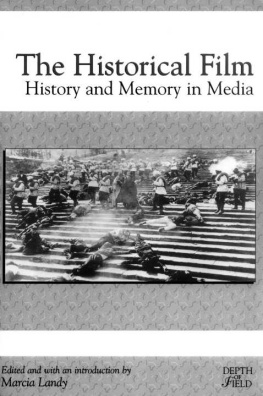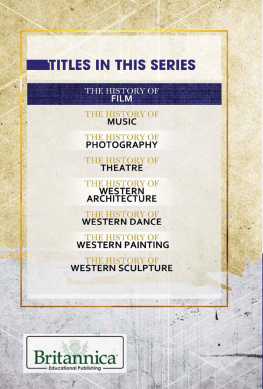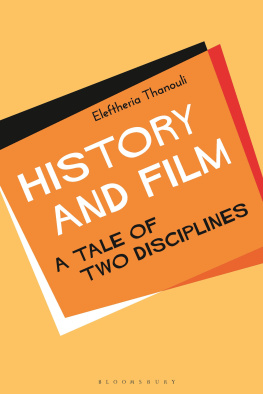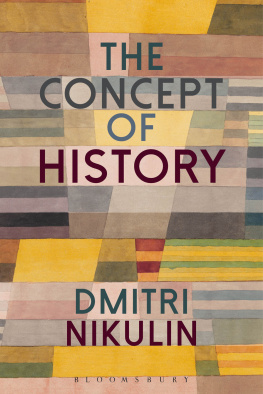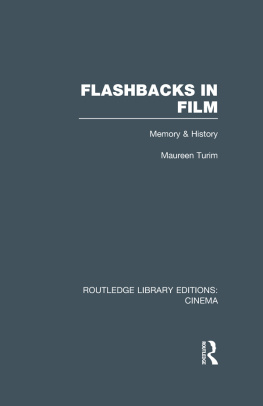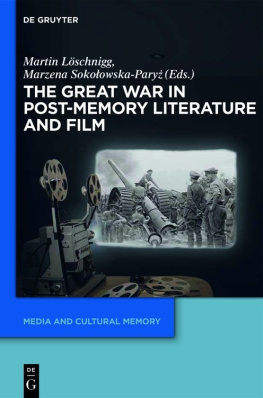The Historical Film
Rutgers Depth of Field Series
Charles Affron, Mirella jona Affron, Robert Lyons, Series Editors
Richard Abel, ed., Silent Film
John Belton, ed., Movies and Mass Culture
Matthew Bernstein, ed., Controlling Hollywood: Censorship and Regulation in the Studio Era
John Thornton Caldwell, ed., Electronic Media and Technoculture
Marcia Landy, ed., The Historical Film: History and Memory in Media
Peter Lehman, ed., Defining Cinema
James Naremore, ed., Film Adaptation
Stephen Prince, ed., Screening Violence
Valerie Smith, ed., Representing Blackness: Issues in Film and Video
Janet Staiger, ed., The Studio System
Linda Willams, ed., Viewing Positions: Ways of Seeing Film
Edited and with an introduction by
Marcia Landy
The
Historical
Film
History and Memory
in Media



Contents
Marcia Landy
Regarding History
Pierre Sorlin
Robert A. Rosenstone
George F Custen
Sue Harper
History as Trauma
Maria Wyke
Marcia Landy
Anton Kaes
Miriam Bratu Hansen
Sumiko Higashi
History, Fiction, and Postcolonial Memory
Naomi Greene
Ismail Xavier
Mbye Cham
History and Television
Mary Ann Doane
Richard Dienst
Taylor Downing
Gary Edgerton
Shawn Rosenheim
Preface

The objective of this book is to identify changing theoretical positions toward conceptions of history in the critical literature. Toward that end, the essays are selected to make available to both the general and the specialized reader representative examples of how media critics and historians write about history as it is portrayed in film and television. The essays address the commanding role that media-including documentaries, films, and television programs-have come to play in altering and complicating our understanding of historical events. In particular, the essays investigate what it means to "read" films historically, and how the methods of historians and media critics work toward that end. I have selected the essays with an eye toward fulfilling the goals of the Depth of Field series: they "appeal to an audience of students or general readers who have an interest in visual culture but who have no great familiarity with current theory or with more specialized academic studies in this area." In order that the reader can view the film texts under discussion by the critics, the essays chosen for inclusion here deal with works readily accessible to the public. The writings in this volume work toward two ends: to find a critical language for addressing the ways in which history is invoked in the cinema, and to establish methods for evaluating the current penchant for memorialization in film and television.
This collection of essays focuses on four aspects of the cinematic uses of the past. It is geared, first of all, to the question "How can we understand and account for the changing perceptions of film scholars and of historians in the project of 'writing' history on film?" Second, the essays explore what is at stake culturally and politically in this enterprise and how it is different from traditional forms of historicizing. Third, the writers of these essays outline issues that film critics and historians have articulated as necessary for the creation of a responsible analytic methodology to treat the character of cinematic and televisual media. And finally, the essays collected here offer examples of different-sometimes conflicting-theoretical and methodological positions on the filmic treatments of history; they are intended to represent different perspectives on what the critics mean when they talk about the uses of the past. Written by both film critics and historians, these critical discussions of films and television productions are designed to represent different styles of filmmaking from different parts of the globe. In most instances, the writers focus on representative films that illuminate the cultural problems posed by the various treatments of history and memory in the work of particular filmmakers.
I want to thank the editors, Mirella Affron, Charles Affron, and Robert Lyons for inviting me to contribute a volume to the series and for their helpful comments on the manuscript. I am extremely grateful to Leslie Mitchner at the Rutgers Press for her support of this book and to Carol Mysliwiec and Sara K. Morriss for their assistance in preparing the manuscript, collating the essays, and in securing permissions from presses and authors. I acknowledge support from the Richard D. and Mary Jane Edwards Endowed Publication Fund.
The Historical Film
Marcia Landy
Introduction
What can we learn from engaging the question "What Is History?" This book focuses on uses of the past and on the nature and role of history and memory. The essays collected here shed light on the ongoing theoretical and practical problems posed by forms of historical representation through cinema and television; and they present methods of analysis that can overturn the conventional (and often negative) judgments about the historicizing potential of the media.
The first section of the book explores problems that stand in the way of analyzing the nature of popular history on film and offers suggestions for how to understand popular representations of the past. The second section discusses specific works of silent and sound cinema produced in Europe and the United States; here, the many cultural sources and styles drawn on in portraying history on film are identified. The third section focuses explicitly on the cinema of postcoloniality and the different forms it can take in the important enterprise of recollecting, rethinking, or challenging versions of the colonial past. The fourth and final section addresses current debates on postmodernism and their relation to questions of history and memory through television.

